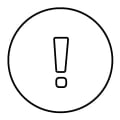HIV Testing: Care Instructions
Overview
You can get tested for the human immunodeficiency virus (HIV). Most doctors use a blood test to check for HIV
antibodies and antigens in your blood. It may also check for the genetic material (RNA) of HIV. Some tests use
saliva to check for HIV antibodies. But these aren't as accurate. For example, they may give a false result if
you've just been infected.
What do the results mean?

Normal (negative)
-
No HIV antibodies, antigens, or RNA were found.
-
You may need more testing. It can make sure your test results are correct.

Uncertain (indeterminate)
-
Test results didn't clearly show if you have an HIV infection.
-
HIV antibodies or antigens may not have formed yet.
-
Some other type of antibody or antigen may have affected the results.
-
You will need another test to be sure.

Abnormal (positive)
-
HIV antibodies, antigens, or RNA were found.
-
If you haven't had an RNA test yet, one will be done. If it's positive, you have HIV.
-
If your test result is positive, your doctor will talk to you. You will discuss starting treatment.
Follow-up care is a key part of your treatment and safety. Be sure to make and go to all
appointments, and call your doctor if you are having problems. It's also a good idea to know your test results
and keep a list of the medicines you take.
Current as of: June 12, 2023
Content Version: 14.0
Care instructions adapted under license by your
healthcare professional. If you have questions about a medical condition or this instruction, always ask
your healthcare professional. Healthwise, Incorporated disclaims any warranty or liability for your use of
this information.
© 2006-2025 Healthwise, Incorporated.